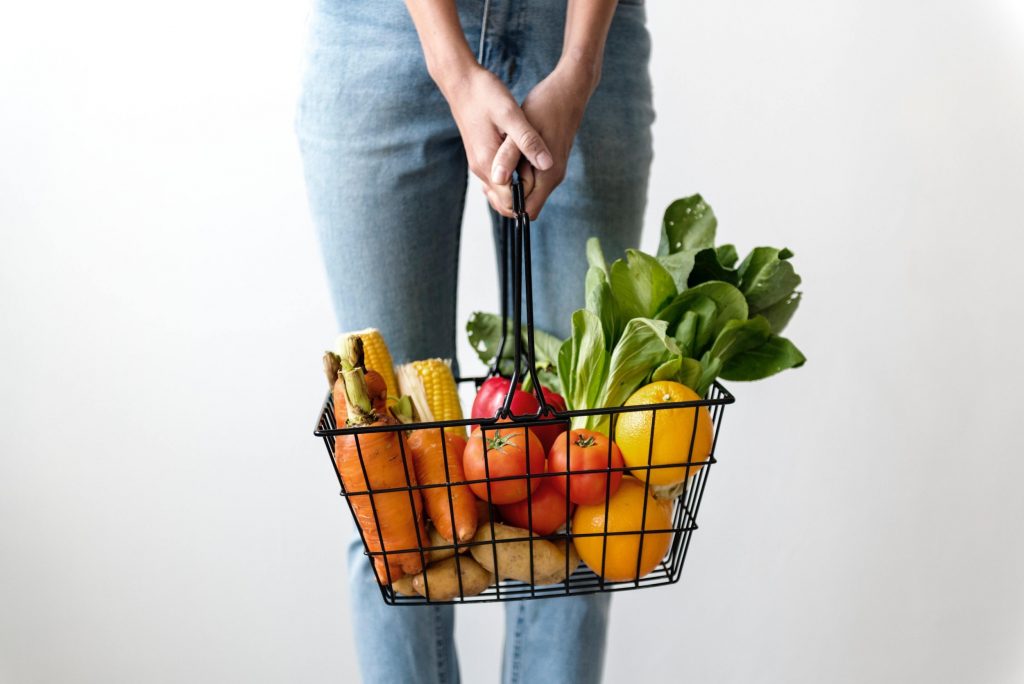Many people try time and time again to find the one “perfect” diet that will cure all their health issues. Are you confused if you should attempt the Keto diet? Paleo? Vegan? Trust me, I would be confused too if I were you! With so many new diets coming “to market” every couple of months, it’s hard for anyone to know which ones actually work, and which ones are sustainable as well.
What if I told you that there might not be a one fits all diet. New studies coming out show that your health depends on your own individual gut health and gut microbiome.
Your gut biome is the top layer of bacteria and other organisms in your gut that helps break down and digest all the food you consume. We all have good and bad bacteria that is determined by a number of factors. It’s determined by how we were born (c-section or vaginally), breastfed/ bottle fed, the foods your mother ate when she was pregnant with you, toxins in our environment, how stressed we are, and the foods you eat. Your gut health can contribute to your overall health from future cancers and auto-immune diseases to chronic illnesses. Everyone’s gut health is different so that’s why there’s no one certain diet that is perfect for everyone. Our gut biome may interact with certain foods differently than our neighbor’s biome.
However, some good news is that there are simple principles that you can incorporate in your life that can likely help most everyone’s gut biome and overall health.
These include:
- Consuming an anti-inflammatory diet
- Reducing high glycemic index foods
- Practicing intermittent fasting (check out my previous blog on fasting here),
- Eating organic
- Reducing antibiotic usage
I’m not here to tell you the perfect diet per say, but I can shine a light on the path that will lead to good health by protecting, maintaining, and growing a healthy gut biome.
Consume an Anti-inflammatory Diet
The average American’s diet consists of high amounts of processed foods. The problem with processed food is that they cause your body’s inflammatory response to turn on. When your body is in that inflammatory state for long periods of time, it can cause chronic diseases like cancer, heart disease, obesity, and auto-immune diseases.
Instead, focus on loading your body with high nutrient foods instead. These include most plant-based foods like vegetables, fruits, legumes, nuts and seeds. They can offer both your body and organs the minerals and vitamins needed to fight off illnesses. Numerous studies done on the Mediterranean Diet show consuming these foods leads to longer, healthier lives. This is because the diet includes a majority of whole plant-based foods and minute amounts of animal products (mostly seafood).
Reduce High Glycemic Index Foods
Everyone’s unique gut microbiome responds differently to foods, ie. how fast certain foods are digested and how fast your blood glucose levels increase. When your gut is healthy, your glycemic response reacts better to foods.
However, there are certain foods that are more likely to keep your blood sugar levels stable than others. Foods are ranked on whether they are high or low on the glycemic scale. High glycemic foods are ones that increase your blood sugar more rapidly than others. This is important because it can raise your blood glucose levels quickly, and therefore raise your insulin too fast, creating an inflammatory response in the body. When your blood glucose levels stay high for long amounts of time, it can cause damage to blood vessels and can even lead to heart disease or stroke. Foods that are high on the glycemic index and that should be avoided, are sugars, sodas, candies, cookies, and ice cream which might seem obvious. Less obvious are foods like simple carbohydrates including many breads, pastas and cereals.
On the other hand, foods on the lower glycemic index are digested more slowly and so your blood sugar levels slowly rise. Examples of foods that are low on the glycemic index are tomatoes, steel cut oats, beans, sweet potatoes, and barley or bulgur.
You might think, I’ll avoid sugars by choosing artificial sweeteners instead. This however, is just as bad. Even though it’s not causing your blood sugar to spike, artificial sweeteners may cause alterations in gut microbiota. This can lead to glucose intolerance and increase your risk for metabolic diseases.
Your gut health can help your glycemic response, and the kinds of foods you eat can help your gut health. Once you make the decision to eat better, it can lead to a healthy cycle instead of a negative one.

Eat Organic
The amount of pesticide usage in the United States is alarming. Each year the rates and amounts increase. Not only does this spray hurt the environment and animals, but it is taking a toll on our health as well. Pesticides are on almost everything we eat that isn’t organic. The issue with this is that pesticides can build up in our body and cause diseases over time. The main chemical in the most popular pesticide, “Roundup”,is called glyphosate. This chemical, glyphosate, has been classified as a probable human carcinogen (cancer causing). Yet, it is still being sprayed all over our country’s crops.
Scientific studies in mice have also seen glyphosate change the gut microbiome. This is vitally important because changes in the gut microbiota may lead to neurobehavioral alterations, increasing the risk for anxiety and depression like behaviors.
The good news is that you can rid your body of some pesticides by consuming an organic diet. One study showed that pesticides were reduced by 60% in just 6 days by consuming a 100% organic diet. If you can only buy certain organic items, focus on foods that are thin-skinned and brightly colored. These fruits and vegetables are usually the most sprayed crops because insects are attracted to them more. Check out the “dirty dozen” and the “clean fifteen” to see which items should be bought as organic, and which contain very little pesticides.
Avoid Antibiotics
Antibiotics do their job in killing bacteria. However, by killing off the unwanted bacteria, it also destroys the good bacteria in our gut as well. Antibiotics wipe out our healthy gut microbiome, which leads to a domino effect of other health concerns as a consequence. It can cause metabolism issues, changes in regulating immune response, nutrient absorption, and resistance to pathogens.
Not only should you limit the amount of antibiotics you take yourself, you should avoid eating foods like meat that were given antibiotics. Consuming meat from cows that were injected with antibiotics can increase your own antibiotic resistance as well and alter your gut flora.
Let’s get back to the basics. Eat whole foods and real ingredients – you know… the ones you can actually pronounce! Go to your local farmers market where you know the farmers and ask them if they spray their produce. Incorporate an abundance of colorful plants in your diet to grow a healthy gut microbiome. When your gut is happy and healthy, your overall health will be happy and healthy.
If you want to feel better and be the healthiest version of yourself, get your FREE copy of Dr. Shelly Sethi’s online book, Built to Thrive, to get started.
APPLY to become a patient at our practice. We work with clients in person and via telemedicine in the US. We’ll help you optimize your health! Click here.


